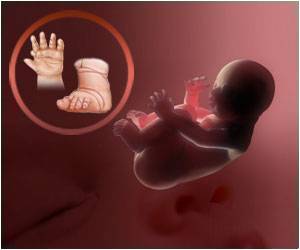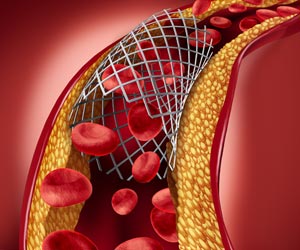VPA is widely used to treat a number of illnesses. However, since its initial use, there have been many thousands of cases of women taking VPA during pregnancy and subsequently giving birth to children with birth defects, including spina bifida, facial alterations, and heart malformation.
In addition, about a third of exposed infants develop cognitive impairment and Autism Spectrum Disorder.
In the new study, Keyes and colleagues used both human organoidsthree-dimensional clusters of human cells grown in the labas well as mice to study embryonic exposure to VPA.
Advertisement
They discovered that VPA induces cellular senescence in neuroepithelial cells, the stem cells that give rise to the central nervous system.
Moreover, the researchers pinpointed one particular molecule, p19Arf, as being responsible for this VPA-induced senescence.
When the team used mice lacking p19Arf, VPA exposure during pregnancy no longer caused microcephaly or changes to gene expression patterns associated with Autism Spectrum Disorder, although VPA did lead to other defects even in these mice.
The work is one of the first to associate cellular senescence with developmental defects, the authors say.
“Overall, the discovery that atypical activation of senescence in the embryo can perturb development raises the intriguing possibility that it may also contribute to defects in developmental contexts beyond those we studied here.”
Muriel Rhinn, first author of the study, adds, “While cellular senescence has long been associated with aging and age-related disease, we now show that aberrant induction of senescence can also contribute to developmental defects.
As valproic acid is strongly linked to cognitive defects and Autism Spectrum Disorder, this study now introduces an exciting link with senescence, supporting how additional studies are needed.”
Source: Medindia



